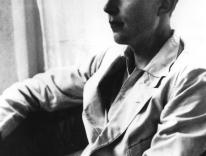This does not come from an angry ex-con-turned-lib, but from Austin Ruse, a stalwart of orthodoxy who writes regularly at The Catholic Thing. His latest column, "Up from Traditionalism," is a must-read. He details with affecting honesty his immersion into the movement at a time of crisis, and hismaturation away from it, in large part due to the faults that its "rejectionist" character seemed to exacerbate--anger, hatred, and guerrilla-like tactics:
We hated the bishops. I cant put it any softer than that. I recall preparing actually to meet a bishop. We practiced kneeling on our left knees and kissing his ring and later we laughed about his obvious embarrassment over such traditional practices. We saw the bishops as not just befuddled, but as sell-outs to political and theological liberalism.And it wasnt just the bishops we hated. We really hated the documents of the Second Vatican Council; they were the root and branch of all the problems in the Church. We felt no need to read or know them, and certainly not to follow them.
We did not hate John Paul II; almost worse, we were indifferent to him. The rest of the Church celebrated each of his new utterances; we shrugged and ignored them.
I looked at myself and the movement and did not like what I saw. [snip] And then there were the exotica. Love of monarchy and deep hatred of America and democracy, all presented as traditional Catholic belief. The movement bred oddness and unhappiness.
Ruse finally decided that he was "a Traditional Catholic and not a Traditionalist one." That reminds me of the aphorism I first encountered, I believe in an E.J. Dionne column somwehere, and traced toJaroslav Pelikan. It is probably a commonplace for many here, but bears repeating: "Tradition is the living faith of the dead, traditionalism is the dead faith of the living."


